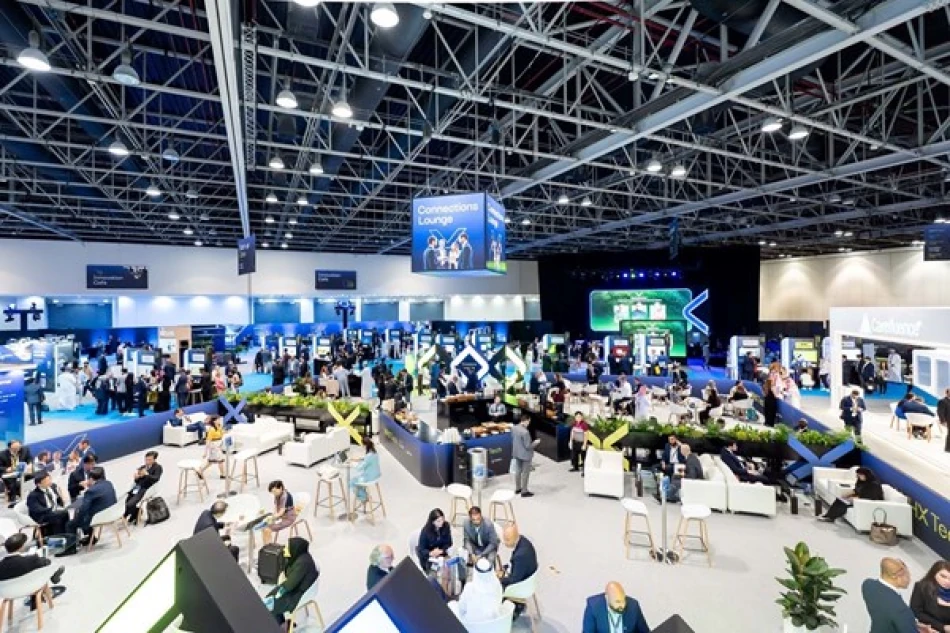
Dubai Hosts Global Health Tech Expo: Cutting-Edge Healthcare Innovation on Display
Dubai Positions Itself as Global Digital Health Innovation Hub with Inaugural WHX Tech 2025
Dubai's ambitious push to become the world's leading digital health innovation center gained significant momentum this week with the launch of WHX Tech 2025, a three-day exhibition that brought together over 300 exhibitors, 200 global speakers, and 5,000 participants from more than 30 countries. The inaugural event signals the UAE's strategic pivot toward healthcare technology leadership, positioning Dubai alongside established innovation hubs like Singapore and Boston in the race to dominate the $659 billion global digital health market.
Strategic Vision Behind Dubai's Digital Health Ambitions
Dr. Alawi Sheikh Ali, Director General of Dubai Health Authority, emphasized that the exhibition reflects the UAE leadership's vision to establish Dubai as a global healthcare innovation center. This initiative aligns with the broader Dubai 2071 strategy, which aims to make the emirate the world's best city by leveraging cutting-edge technologies across all sectors.
The timing is particularly strategic. As global healthcare systems grapple with aging populations, rising chronic diseases, and post-pandemic digital transformation needs, Dubai is positioning itself to capture a significant share of the digital health market, which is projected to reach $1.5 trillion by 2030.
Technology Focus Areas Signal Market Opportunities
AI and Big Data Analytics Take Center Stage
The exhibition showcased technologies spanning artificial intelligence, robotics, virtual reality, cybersecurity, telemedicine, and big data analytics. This comprehensive approach mirrors successful models in other innovation hubs, but Dubai's unique advantage lies in its regulatory flexibility and government backing.
Notable speakers included healthcare data leaders from Saudi Arabia's NEOM project, Amazon Web Services healthcare innovation chiefs, and Microsoft's global medical directors. Their participation suggests major tech companies view the Middle East as a priority market for healthcare technology deployment.
Three Innovation Platforms Drive Different Market Segments
The event's structure around three platforms—"World X," "Future X," and "Xcelerate"—reveals a sophisticated understanding of the digital health ecosystem. World X focused on global case studies and regulatory frameworks, addressing the critical challenge of scaling healthcare innovations across different markets and regulatory environments.
Future X explored practical AI applications, featuring partnerships with institutions like King's College London and companies like Huawei. This academic-industry collaboration model has proven successful in other innovation ecosystems and suggests Dubai is building sustainable innovation infrastructure rather than just hosting events.
Regional Competition and Market Dynamics
Dubai's digital health push comes as regional competition intensifies. Saudi Arabia's NEOM project represents a $500 billion smart city initiative with significant healthcare components, while Qatar and Abu Dhabi have launched their own healthcare innovation programs. However, Dubai's established position as a regional business hub and its existing healthcare infrastructure provide competitive advantages.
The emirate's approach differs from Silicon Valley's venture capital-driven model or Singapore's government-led initiatives. Instead, Dubai is leveraging its position as a regional gateway, attracting international companies to establish Middle East headquarters while fostering local innovation through startup competitions and regulatory sandboxes.
Investment and Market Implications
The exhibition's scale and international participation suggest significant investment opportunities in the region's digital health sector. With over 5,000 participants representing diverse markets, the event serves as both a showcase and a marketplace for healthcare technology solutions.
The "Xcelerate" platform's focus on startup competitions indicates Dubai's intention to nurture homegrown innovation while attracting international talent. This dual approach has proven effective in other sectors like fintech, where Dubai has successfully established itself as a regional leader.
Regulatory Framework as Competitive Advantage
Dr. Amin Al Amiri from the UAE Ministry of Health's regulatory sector highlighted the evolution of regulatory frameworks to accommodate emerging technologies. This proactive regulatory approach contrasts with more cautious stances in established markets like Europe or the United States, potentially giving Dubai a first-mover advantage in deploying cutting-edge healthcare technologies.
The strategic partnership with the Healthcare Information and Management Systems Society further legitimizes Dubai's digital health ambitions and provides access to global best practices and standards.
Long-term Market Impact
WHX Tech 2025 represents more than an exhibition—it's a statement of intent from Dubai's leadership to capture a significant portion of the global digital health market. By combining government support, regulatory flexibility, strategic location, and international partnerships, Dubai is creating conditions that could attract billions in healthcare technology investment over the next decade.
The success of this inaugural event will likely determine whether Dubai can replicate its achievements in aviation, logistics, and finance within the healthcare technology sector, potentially reshaping the Middle East's position in the global innovation economy.
Most Viewed News

 Layla Al Mansoori
Layla Al Mansoori






